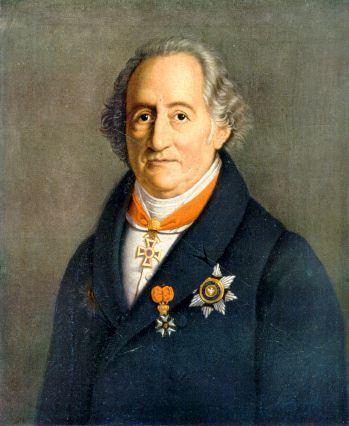There are many countries in our blood ... but only one person.
One may assume that the title of this novel has some affinity with a famous palindrome involving this U.S. president, but that impression may be owing to the uncommon marriage of politics and poetry. What can be said of Greene's novel is that it is at once frantic and unconcerned, loquacious and far too presumptuous regarding our comprehension of its details. But the details are delicious and therein lies its charm.

Our protagonist is James Wormold, a single father of a precocious seventeen-year-old girl, a vacuum cleaner salesman, and, for the last fifteen years or so, a British expatriate in Batista's Cuba. Wormold possesses even in surname many of the sad-sack qualities that might endear him to tender hearts, most of all because he has a lovely, almost saintly daughter and not much else to care about in the world. His daily routine, which occasionally does involve the sale of a vacuum, varies only in what his daughter Milly comes to know of the world (prayers, horses and strange men, as it were, although Milly is almost all talk). One day a curious-looking fellow, ostensibly one of his countrymen, enters Wormold's store and begins asking questions that have little to do with cleaning appurtenances. A rat is smelled, and it is generally clear of what breed:
Wormold had the impression that the man had chosen his tone because he felt it matched the store – a protective coloring in Lamparilla Street; the breeziness certainly didn't match his clothes. One can't successfully follow St. Paul's technique of being all things to all men without a change of suit.
As has been said of this author, Wormold may have lost his religion but not his categories. The man's name turns out to be Hawthorne and his profession turns out to be, well, what we might euphemistically term "patriotic information technology." Hawthorne knows a hard-up, bourgeois coward when he sees one, and that is precisely the image of himself that Wormold allows everyone to have. These tired souls are often viewed as the losers of the world and cast aside as useless (at one point Wormold "felt himself to be part of the slow erosion of Havana"). And perhaps for this very reason does Hawthorne suggest that Wormold – who bitterly enjoins the quote that begins this review – participate in the cause of Englishmen and women around the world and compose some insider reports for the Home Office.
And women, English or otherwise, pose another problem. Wormold is but forty-five yet already resigned to the flabby loneliness of middle age ("the period of sad caution," he says). He disapproves of Milly's courtship by an older widower but can do nothing about it. Especially since this same widower happens to be Captain Segura, "The Red Vulture," head of the Vedado police and a renowned torturer. "Catholics are more torturable than Protestants, just as they are more criminal," claims Segura while rubbing an étui made, as Milly proudly announces, out of human skin. Wormold may be powerless against the devil, but he is not without creative diversions. Using per Hawthorne's instructions this dreadful book as his cipher, Wormold begins transmitting some rather ludicrous cables in which he rounds up agents and sends them scurrying about for information on the looming revolt. These include Dr. Hasselbecher, an old German doctor, Cifuentes the engineer, Teresa the nude dancer, Professor Sanchez, a lascivious academic, and Raul, a disgraced airline pilot now tasked with aerial surveillance of "rebel platforms" in the mountains. Reporting through the British Embassy goes so well ("They are pleased with you in London," says one associate, "I can tell by the way they cable you") that Wormold is assigned a wordless accountant named Rudy, a keen move as the vacuum salesman is prone to errors in calculation ("a decimal point got shifted and had to be chased up and down a dozen columns"). He is also assigned someone he could never have expected, a secretary with the devastating name of Beatrice.
Greene always protested the label "Catholic novelist," because in his case these are two separate labels; Beatrice then is hardly of coincidental usage. While Milly is completely implausible as one of those amazingly eloquent and mature teenagers that modern screenwriters for some reason deem profound, Beatrice is emotionally absent in a very familiar way. She is half-French, young and divorced from a UNESCO drone, and more than a tad suspicious of Wormold's capabilities. She is also full of proverbial wisdom: "the way to become really conspicuous [i]s to try to escape notice"; "it almost seems worthwhile being blind in this sun"; "I can't believe in anything bigger than a home, or anything vaguer than a human being"; "in murdering anyone you have to avoid scandal"; "I suppose we do look a bit the same naked, like the Japanese." She is kind to a local woman whose poor English belies her claim to be Beatrice's compatriot; whether she owes this kindness to pity or a highly-developed tolerance for mendacity remains unclear. So we should not be surprised when, exactly halfway through Our Man in Havana, Beatrice seems to know Wormold's game, a game that needn't be revealed here. Well, perhaps we can drop a faint hint:
The story was not yet complete. Just as in real life, accidents could happen; a character might take control. Perhaps Raul would be intercepted before embarking, perhaps he would be stopped by a police car on his way. He might disappear into the torture chambers of Captain Segura. No reference would appear in the press. Wormold would warn London that he was going off the air in case Raul was forced to talk. The radio-set would be dismantled and hidden after the last message had been sent, the celluloid sheets would be kept ready for a final conflagration .... Or perhaps Raul would take off in safety and they would never know what exactly happened to him over the Oriente mountains. Only one thing in the story was certain: he would not arrive in Jamaica and there would be no photographs.
And the blueprints of those platforms or bases or whatever on earth they're supposed to be? They remind both Beatrice and Hawthorne of something they cannot immediately identify. But the Home Office is enamored with these magnificent documents and Beatrice and Hawthorne are nothing if not docile hounds to the HO's whims. And as our narrator informs us, in a mad world it always seems simpler to obey.
 Wednesday, July 28, 2010 at 19:49
Wednesday, July 28, 2010 at 19:49 
 If only pure creative strength
If only pure creative strength  deeblog |
deeblog |  2 Comments |
2 Comments |  Goethe in
Goethe in  German literature and film,
German literature and film,  Poems,
Poems,  Translation
Translation 





